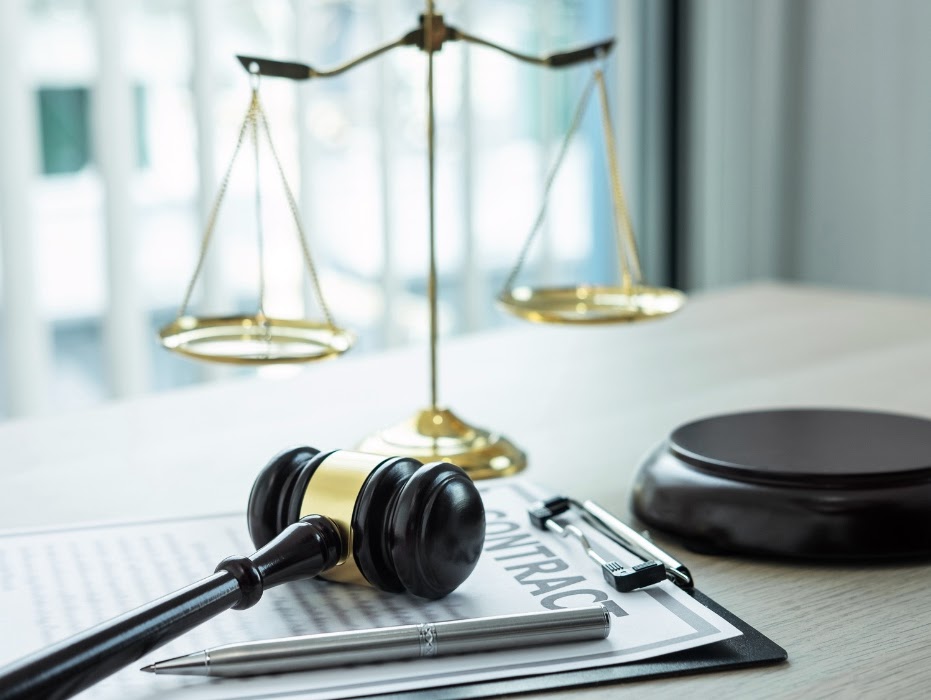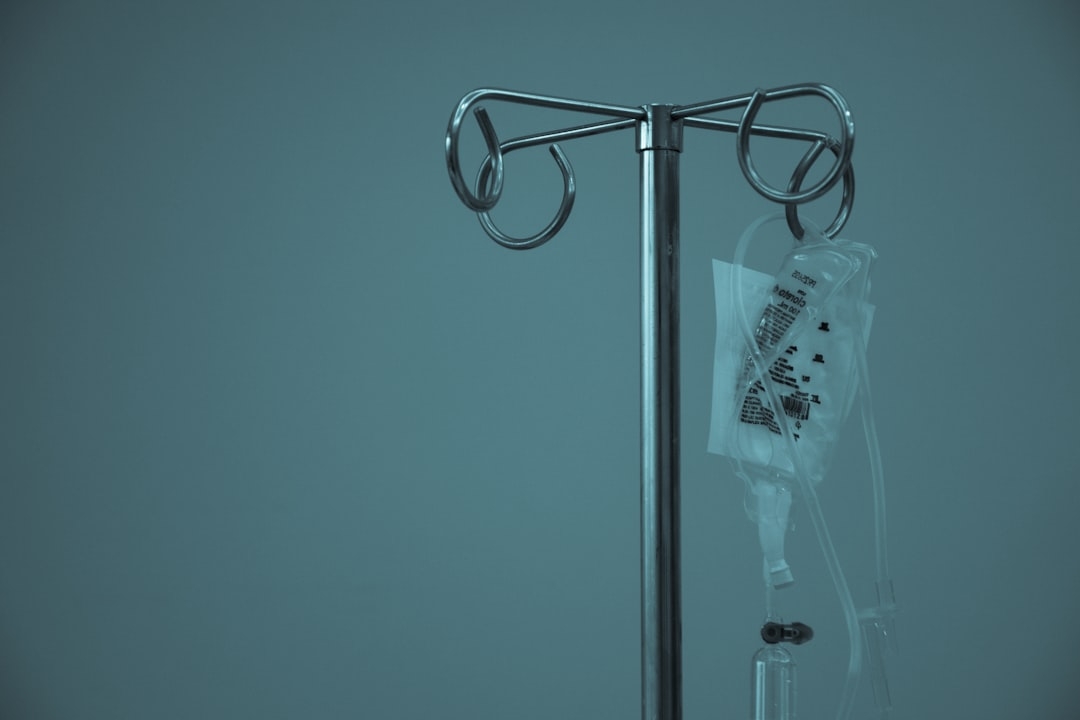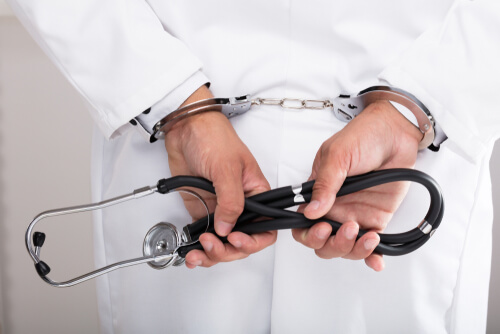Legal Definition and Criteria for Wrongful Death
Wrongful death is a legal term that refers to a situation where an individual's death is caused by the negligence, recklessness, or intentional act of another person or entity. This concept provides a legal avenue for survivors to seek compensation for their losses and hold the responsible parties accountable. Understanding the legal definition and criteria for wrongful death claims is crucial for families navigating these challenging circumstances.
At its core, a wrongful death claim is a civil lawsuit brought forward by the surviving family members or beneficiaries of the deceased. The primary aim of such claims is to compensate those who have suffered emotional and financial harm due to the untimely loss of their loved one. Unlike criminal cases, which are prosecuted by the state and focus on punishing the wrongdoer, wrongful death claims center around restitution and are pursued in civil courts.
To establish a successful wrongful death claim, certain criteria must be met. First and foremost, it must be demonstrated that a human life was lost due to another party's actions or lack thereof. This can include situations such as medical malpractice, car accidents caused by reckless driving, workplace accidents due to unsafe conditions, or even deliberate acts like assault leading to fatal injuries.
The second criterion involves proving negligence or intent. In most wrongful death cases, it must be shown that the defendant had a duty of care towards the deceased but failed to meet this obligation through negligent behavior or intentional harm. For instance, in a medical malpractice case, it must be proven that healthcare professionals did not follow standard protocols which resulted in fatal consequences.
Another vital aspect is causation; there needs to be a direct link between the defendant's actions and the victim's death. This means showing that if not for the defendant's conduct-be it negligent or intentional-the decedent would have likely survived.
Lastly, monetary damages resulting from the loss need to be established. These damages can include loss of income and support previously provided by the deceased, funeral expenses, medical bills incurred before death due to injury-related treatment, as well as non-economic damages like pain and suffering endured by both the deceased prior to passing and their surviving family members.
Legal statutes regarding who can file wrongful death claims vary among jurisdictions but commonly include immediate family members such as spouses, children (including adopted), and sometimes parents if they were financially dependent on their child.
In conclusion, while no amount of money can replace a lost loved one, wrongful death claims serve a significant role in providing financial relief and some measure of justice for grieving families. By understanding these legal definitions and criteria-negligence or intent leading directly to loss-a pathway exists not only towards holding wrongdoers accountable but also ensuring that victims' families are supported during turbulent times.
Parties Eligible to File a Wrongful Death Claim
Wrongful death claims arise in situations where an individual loses their life due to the negligent or intentional actions of another party. These claims are legal avenues that allow certain parties to seek compensation for the loss they have suffered, both emotionally and financially. The eligibility to file a wrongful death claim is defined by statutes, which vary from jurisdiction to jurisdiction, but generally revolve around specific relationships with the deceased.
Typically, the primary parties eligible to file a wrongful death claim are immediate family members. This usually includes spouses, children, and parents of unmarried deceased individuals. Their close relationship with the decedent positions them as the most directly impacted by the untimely death. Spouses often face not only emotional turmoil but also financial instability due to the loss of partnership and support. Similarly, children might suffer from a lack of parental guidance and economic support essential for their development.
In some jurisdictions, extended family members such as siblings or grandparents may also be eligible to file if they can prove they were financially dependent on the deceased or had a significant relationship that resulted in substantial emotional harm following their loved one's demise. However, these claims can be more challenging to establish legally due to the need for concrete evidence of dependency or impact.
Additionally, there are cases where individuals who were financially reliant on the deceased but not necessarily related by blood or marriage may have standing in a wrongful death claim. This could include domestic partners in states recognizing such relationships or even stepchildren who relied on the decedent for financial support.
It is important to recognize that while these parties have standing in a wrongful death suit, each must navigate complex legal frameworks that govern how claims must be filed and how damages are distributed among eligible parties. Legal representation becomes crucial in ensuring that those entitled receive fair compensation reflective of both pecuniary losses and non-economic damages like grief and loss of companionship.
In conclusion, determining eligibility for filing a wrongful death claim hinges on statutory interpretations within different jurisdictions but commonly centers around familial connections and dependency factors. Understanding who qualifies requires navigating these intricate laws with sensitivity toward family dynamics and recognition of all affected by such tragic losses. Through this legal remedy, grieving families find not only monetary relief but also a sense of accountability against those responsible for their loved one's untimely passing.
Common Causes of Wrongful Death Cases
Wrongful death claims are a poignant reflection of the unexpected and often preventable loss of life due to another party's negligence or misconduct. These cases traverse a landscape marked by grief, seeking justice for those who can no longer speak for themselves. Understanding the common causes behind such claims is crucial, not only for legal professionals but also for society at large, as it underscores the importance of accountability and safety.
One of the most prevalent causes of wrongful death cases stems from medical malpractice. The trust we place in healthcare professionals is profound; they hold our lives in their hands. However, errors in diagnosis, surgical procedures gone awry, or medication mishaps can result in tragic outcomes. In these instances, what was intended to heal becomes a catalyst for harm. The complexity of medical procedures does allow room for human error, but when negligence breaches professional standards, it becomes an unforgivable lapse leading to fatal consequences.
Automobile accidents also feature prominently among wrongful death claims. With millions of vehicles on the road each day, mishaps are inevitable. Yet, many accidents could be avoided with responsible behavior and adherence to traffic laws. Reckless driving, speeding, driving under the influence of alcohol or drugs-these are actions that transform vehicles into instruments of destruction. Distracted driving has emerged as a modern threat; with smartphones competing for drivers' attention, lives hang precariously in balance more than ever before.
Workplace accidents contribute significantly to wrongful death statistics as well. Despite regulations designed to protect workers' safety, lapses occur with alarming frequency across various industries. Construction sites pose particular risks due to heavy machinery and elevated workspaces where falls can have fatal results if proper precautions aren't enforced diligently. Exposure to hazardous substances without adequate protective gear is another peril that endangers workers' lives unnecessarily.
Product liability cases also find their way into wrongful death litigation when defective products cause fatalities-be it due to faulty machinery parts or unsafe consumer goods like toys or electronics catching fire unexpectedly. Manufacturers bear responsibility here; rigorous testing and quality control should prevent dangerous products from reaching consumers' hands.
In exploring these common causes behind wrongful deaths-the indelible thread linking them all is negligence-whether through action or omission-it disrupts lives irreparably leaving families grappling with sorrow compounded by an absence that cries out for justice served rightly within the courts system so others might not suffer similar fates down life's unpredictable pathways ahead..
Ultimately recognizing these factors fosters awareness needed both culturally societally alike toward preventing future tragedies ensuring loved ones never pay price again failures past repeating anew thus honoring memories departed building safer tomorrow together hand-in-hand united resolve unwavering purpose guiding light forward unmarred shadows yesterday still linger hauntingly present reminding us stakes remain ever high vigilance key safeguard precious gift life holds dear each breath taken promise hope fulfilled dreams realized beyond measure shared humanity embraces fully whole-heartedly always forevermore hopeful better days yet come awaiting horizon unfold mystery times await beyond current grasp known unknown alike journey continues onward steadfast courageously bravely face whatever challenges may arise unforeseen moments destined shape destinies untold stories written lived told remembered cherished eternally everlasting tribute legacy enduring spirit lives lost tragically too soon yet remembered fondly dearly held close hearts minds souls intertwined eternally bound love transcends space time unite bond unbreakable eternal flame burning brightly illuminating path forward filled possibilities endless potential realized one step time together shoulder shoulder side side moving ever onward upward higher ground reached ultimately fulfilling promise brighter future calls beckoning us forward faithfully assured confidence hope springs eternal new day dawns fresh beginning awaits discovery anew exciting chapter unfolds
Process for Filing a Wrongful Death Lawsuit
A wrongful death lawsuit is a legal action taken when an individual's death is believed to have been caused by the negligence or misconduct of another party. This type of lawsuit allows the surviving family members or beneficiaries to seek compensation for their loss. The process for filing a wrongful death lawsuit can be complex and emotionally challenging, but understanding its key steps is essential for those seeking justice.
The first step in filing a wrongful death lawsuit involves determining eligibility. Generally, immediate family members such as spouses, children, and parents are eligible to file such claims. Some jurisdictions may also allow extended family members or financial dependents to file suit, but this varies by state law.
Once eligibility has been established, it is crucial to consult with an experienced attorney specializing in wrongful death cases. This legal expert will help navigate the intricacies of the case and ensure that all legal protocols are followed correctly. An attorney will also assist in gathering necessary evidence, which may include medical records, eyewitness accounts, and expert testimonies that demonstrate negligence or misconduct on the part of the defendant.
After gathering sufficient evidence, the next step involves filing the complaint in civil court. This document outlines the allegations against the defendant and specifies the damages being sought. It must be filed within a specific time frame known as the statute of limitations, which varies by state but typically ranges from one to three years after the decedent's passing.
Following the filing of a complaint, both parties engage in a discovery process where they exchange information pertinent to the case. This phase may involve depositions, interrogatories, and requests for documents that can substantiate claims or defenses.
In many cases, parties may attempt to reach an out-of-court settlement through negotiation or mediation before proceeding to trial. Settlements can often provide quicker resolutions and reduce legal expenses while ensuring some form of compensation for survivors.
If a settlement cannot be reached, the case proceeds to trial where both sides present their arguments before a judge or jury. The court then determines liability and awards damages accordingly if it rules in favor of the plaintiff.
Throughout this entire process, emotional support from loved ones and professional counseling can be invaluable as families cope with their loss while navigating legal proceedings.
Filing a wrongful death lawsuit is undoubtedly challenging; however, it serves as an important mechanism for holding negligent parties accountable while providing financial assistance needed during difficult times. Understanding each step involved enables affected families not only seek justice but also honor their lost loved one's memory effectively.
Potential Damages and Compensation in Wrongful Death Claims
In the somber realm of wrongful death claims, the terms "potential damages" and "compensation" carry profound significance. These concepts transcend mere financial calculations, delving into the heart of justice for families left in the wake of a loved one's untimely demise. Understanding these elements is crucial in navigating the complex legal landscape that seeks to address both tangible and intangible losses.
Wrongful death claims arise when an individual's life is cut short due to another's negligence or intentional act. In such circumstances, surviving family members may seek legal recourse not only as a means of holding responsible parties accountable but also to obtain financial redress for their losses. The notion of potential damages encompasses a broad spectrum of considerations, each reflecting different aspects of the deceased's contributions and the family's suffering.
Economic damages form a substantial component of potential compensation in wrongful death claims. These are quantifiable losses that can be calculated with a degree of certainty, including medical expenses incurred prior to death, funeral costs, and loss of income or benefits that the deceased would have provided had they lived. This category serves as an essential foundation for any claim, offering a concrete assessment of financial impact.
However, beyond economic metrics lies the more elusive domain of non-economic damages. Herein lies recognition for the emotional pain and suffering endured by those left behind-the loss of companionship, guidance, love, and affection that no monetary sum can truly replace. Courts grapple with assigning value to these immeasurable facets; yet they remain integral components in acknowledging the full scope of familial loss.
Moreover, potential damages may extend into punitive territory if evidence suggests egregious misconduct by the defendant. Unlike compensatory damages aimed at restitution, punitive damages serve as societal censure against particularly reckless behavior. Their purpose is dual: deterrence against future similar conduct and retribution for actions deemed morally reprehensible.
The pursuit of compensation through wrongful death claims embodies more than just material recovery; it represents an attempt to weave together fragments left by tragedy into some semblance of justice and resolution. It acknowledges both practical needs-such as maintaining financial stability-and deeper emotional voids that echo long after court proceedings conclude.
Legal practitioners play pivotal roles here-translating grief into actionable claims requires sensitivity alongside expertise. They must navigate statutes varying across jurisdictions while ensuring clients feel heard amidst procedural complexities.
Ultimately though no settlement will ever bring back what was lost nor erase enduring sorrow it offers families pathways towards healing closure perhaps even hope-a testamentary reminder society values human life enough not only mandate accountability but also endeavor repair broken hearts best way possible within imperfect system justice prevailing world today so closely intertwined grief resilience courage demand fairness compassion above all else.
Challenges and Considerations in Pursuing a Claim
Pursuing a wrongful death claim is a profoundly challenging endeavor, laden with emotional and legal complexities. This type of claim is pursued when an individual's death is alleged to have been caused by the negligence or misconduct of another party. While seeking justice and compensation can provide some solace to grieving families, the process itself involves several hurdles and considerations that require careful navigation.
One of the primary challenges in pursuing a wrongful death claim lies in the emotional toll it takes on the family. Dealing with the loss of a loved one is heart-wrenching enough without having to engage in legal battles. Families must balance their grief with the demands of a legal process that often requires them to relive painful memories as they gather evidence and recount events leading up to the tragedy. It's essential for families to seek support from compassionate legal counsel who can guide them through these difficult times with sensitivity and understanding.
Another significant consideration is establishing liability. In wrongful death claims, proving fault or negligence can be complex, as it often requires thorough investigation and expert testimony. The burden of proof rests on demonstrating that the defendant's actions directly led to the deceased's untimely demise. This often involves intricate legal arguments about duty of care, breach, causation, and damages-concepts that can be daunting for those not well-versed in law.
Moreover, wrongful death claims are subject to specific statutes of limitations which vary by jurisdiction. These laws dictate how long plaintiffs have to file a lawsuit following their loved one's death. Missing this window could result in losing the right to pursue compensation altogether. Therefore, it's crucial for families considering such claims to act promptly while ensuring they have gathered all necessary information and documentation.
Financial considerations also play a pivotal role in wrongful death claims. While these cases aim to provide monetary compensation for losses such as lost income, medical expenses, funeral costs, and emotional suffering, litigation can be expensive and time-consuming. Plaintiffs must weigh potential financial outcomes against legal costs and fees involved in pursuing their case.
Additionally, wrongful death claims often involve navigating complex relationships among surviving family members or beneficiaries who may have competing interests or differing opinions on how best to proceed legally or divide any awarded settlement or judgment.
In conclusion, pursuing a wrongful death claim requires balancing numerous challenges with careful consideration at each step along this emotionally charged journey toward justice. Securing experienced legal representation helps mitigate these difficulties by providing invaluable guidance through every stage-from gathering evidence necessary for proving liability all way down negotiating settlements if appropriate-to ensure bereaved families receive fair compensation reflective both tangible intangible losses suffered due tragic circumstances surrounding loved one's passing away untimely manner possible given factors unique individual situation case presents itself under law governing particular jurisdiction applicable therein accordingly thereto thereby ultimately achieving peace closure sought after amidst trying times faced thereof henceforth onward forevermore thereafter onward evermore forthwith amen verily thusly so proclaimed declared stated affirmed hereinabove aforementioned hereby rightfully justly duly noted affirmed acknowledged recognized ratified verified validated authenticated substantiated corroborated confirmed endorsed certified witnessed attested sworn solemnized enacted instituted promulgated decreed ordained enacted legislated codified established constituted founded grounded rooted based set forth laid down prescribed enjoined imposed mandated commanded directed instructed charged ordered tasked obligated required necessitated dictated compelled forced constrained impelled driven moved urged prompted inclined disposed predisposed prone liable apt likely predisposed inclined bent leaned swayed influenced affected impacted touched stirred aroused awakened roused stirred inspired enthused motivated energized activated sparked ignited fired fueled propelled pushed spurred goaded incited provoked stimulated excited thrilled exhilarated enliven
Importance of Legal Representation in Wrongful Death Cases
The loss of a loved one is an emotional burden that no family should have to endure, especially when that loss results from the negligence or misconduct of another party. Wrongful death cases arise in such tragic circumstances, and navigating the legal complexities involved can be overwhelming for grieving families. It is in these moments of vulnerability that the importance of legal representation becomes crucial.
A wrongful death claim seeks to provide justice and financial compensation to the surviving family members for their loss. However, achieving a favorable outcome requires more than just understanding the raw facts of the case; it necessitates a comprehensive grasp of intricate legal principles and processes. This is where skilled legal representation comes into play.
Firstly, an experienced attorney offers expertise in evaluating the merits of a wrongful death claim. They meticulously investigate the circumstances surrounding the death, gathering evidence to establish liability and causation. This includes collecting medical records, accident reports, eyewitness testimonies, and expert opinions to build a compelling case. Without this thorough investigation, critical details might be overlooked, weakening the potential for success in court or during settlement negotiations.
Moreover, wrongful death cases often involve complex statutes and regulations that vary by jurisdiction. A knowledgeable lawyer ensures compliance with all procedural requirements and deadlines associated with filing a claim. Missing these procedural elements could result in dismissal or delays that compromise justice for the bereaved family.
In addition to navigating legal intricacies, attorneys provide invaluable support by handling communications with insurance companies and opposing counsel. Insurance adjusters are often skilled negotiators whose primary goal is to minimize payouts. An adept lawyer acts as a buffer between grieving families and these entities, advocating fiercely to secure fair compensation that reflects both economic losses-such as future income-and non-economic damages like pain and suffering.
Furthermore, having legal representation allows families to focus on healing rather than being consumed by paperwork and court proceedings. The emotional toll of reliving traumatic events during litigation can be daunting; thus, having someone who understands both law and compassion eases this burden significantly.
Finally, effective legal representation provides families with peace of mind knowing their interests are protected by someone dedicated to achieving justice on their behalf. This reassurance empowers them during one of life's most challenging times-transforming feelings of helplessness into hope for accountability.
In conclusion, while no amount of money can replace a lost loved one or erase grief entirely-the role played by adept lawyers in wrongful death claims cannot be understated nor undervalued-they stand as pillars supporting families through turbulent waters towards closure while seeking rightful compensation amidst profound sorrow caused by others' irresponsibility or negligence.





